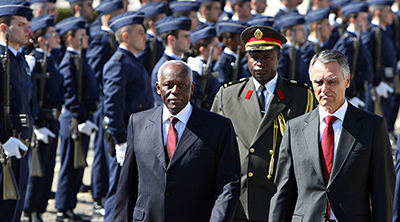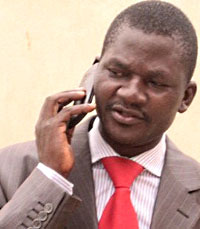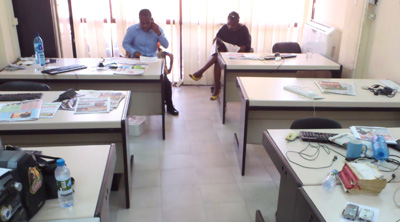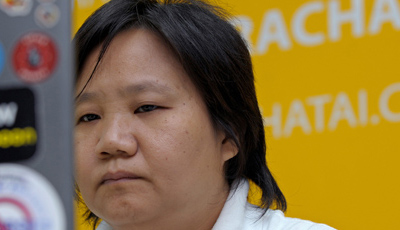
First US-Africa summit short on press freedom, other human rights
Top African and U.S. leaders are meeting next week in Washington in a first-of-its-kind summit focused on African development. But critics argue the summit is flawed in design, overlooking human rights such as freedom of expression and barring civil society actors from bilateral discussions.
Training can help journalists survive captivity
Two murdered journalists for the Africa service of Radio France Internationale, Ghislaine Dupont, 51, and Claude Verlon, 58, might have had a chance. They were abducted on November 2 in Kidal in northern Mali, but the vehicle their captors were driving suddenly broke down, according to news reports.
Angolan police assault, detain journalists
New York, September 20, 2013–At least three journalists were assaulted by police and briefly detained today while covering the release of seven individuals who were arrested during a protest on Thursday, according to the journalists and news accounts. Protesters had staged a demonstration against what they called the authoritarian regime of President José Eduardo dos…
Investigative journalist under threat again in Angola
The Angolan government has brought criminal charges against journalist Rafael Marques de Morais for his book, Blood Diamonds: Corruption and Torture in Angola, published in Portugal in 2011, that documented allegations of homicides, torture, forced displacement of civilian settlements, and intimidation of inhabitants of the diamond-mining areas of the country’s Lundas region.

Portuguese media chilled by Angolan involvement
Portuguese journalists are increasingly concerned by Angola’s growing investment and influence in their country. Buoyed by petrodollars and diamonds, powerful Angolan interests have been indulging in a buying spree in their former colonial power. Angolan capital invested in Portugal increased 35 times in the past decade, according to news reports. In a process often acidly…

Independent Angolan journalist’s home robbed in Cabinda
New York, June 13, 2012–Authorities in Angola’s enclave of Cabinda must immediately launch an investigation into the robbery at the home of an independent journalist on Sunday, the Committee to Protect Journalists said today.Unidentified assailants ransacked the house of José Manuel Gimbi, a correspondent of the U.S. government-funded broadcaster Voice of America and a human…

Angolan police raid weekly’s office, seize computers
New York, March 12, 2012–The Committee to Protect Journalists condemns today’s Angolan police raid at the independent weekly Folha 8, which was conducted in connection with a politicized investigation into the publication of a satirical photo montage. Officers confiscated all of Folha 8’s computers, effectively crippling the operations of one of the country’s two remaining…

Attacks on the Press in 2011: Regulating the Internet
Legislation for Internet security can quickly turn into a weapon against the free press. Cybercrime laws are intended to extend existing penal codes to the online world, but they can easily be broadened to criminalize standard journalistic practices. By Danny O’Brien
Attacks on the Press in 2011: Angola
Youth-led and social media-fueled protests demanding reform challenged President José Eduardo Dos Santos, who marked 32 years in power. Parliament, controlled by Dos Santos’ MPLA party, considered legislation to “combat crime” in information and communication technology. The bill, pending in late year, would stiffen penalties for defamation and would criminalize electronic dissemination of “recordings, pictures,…